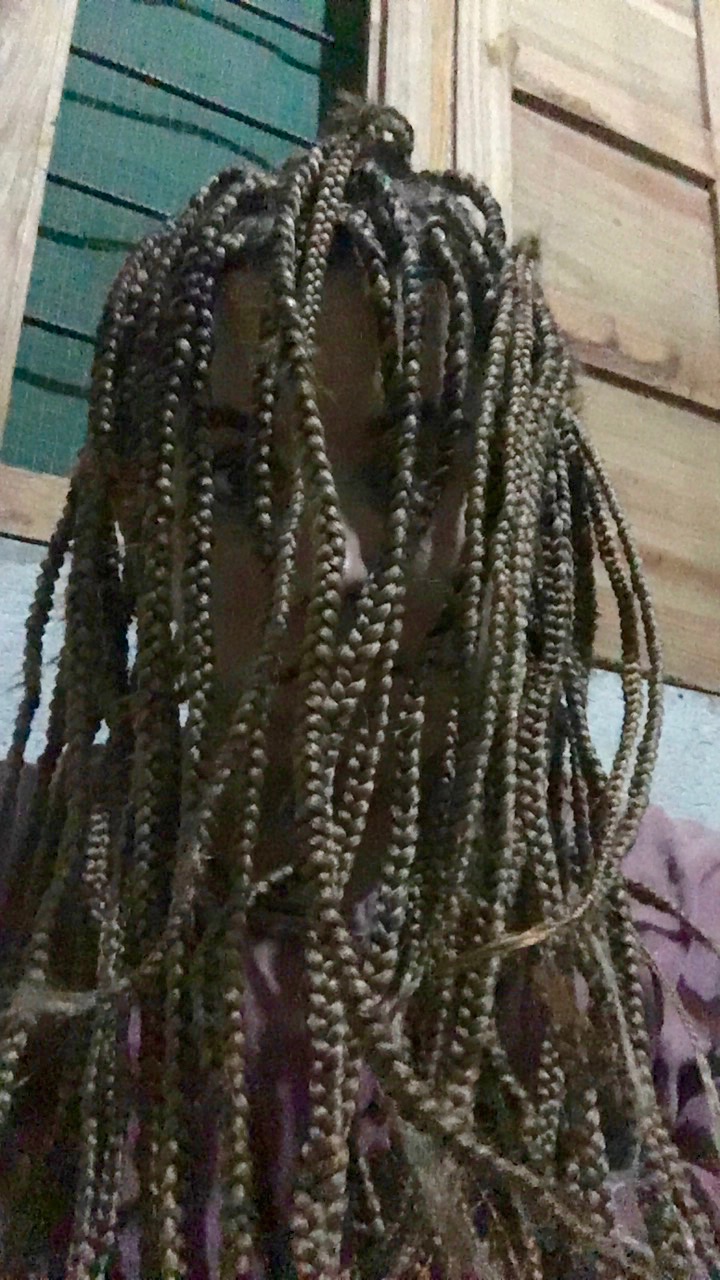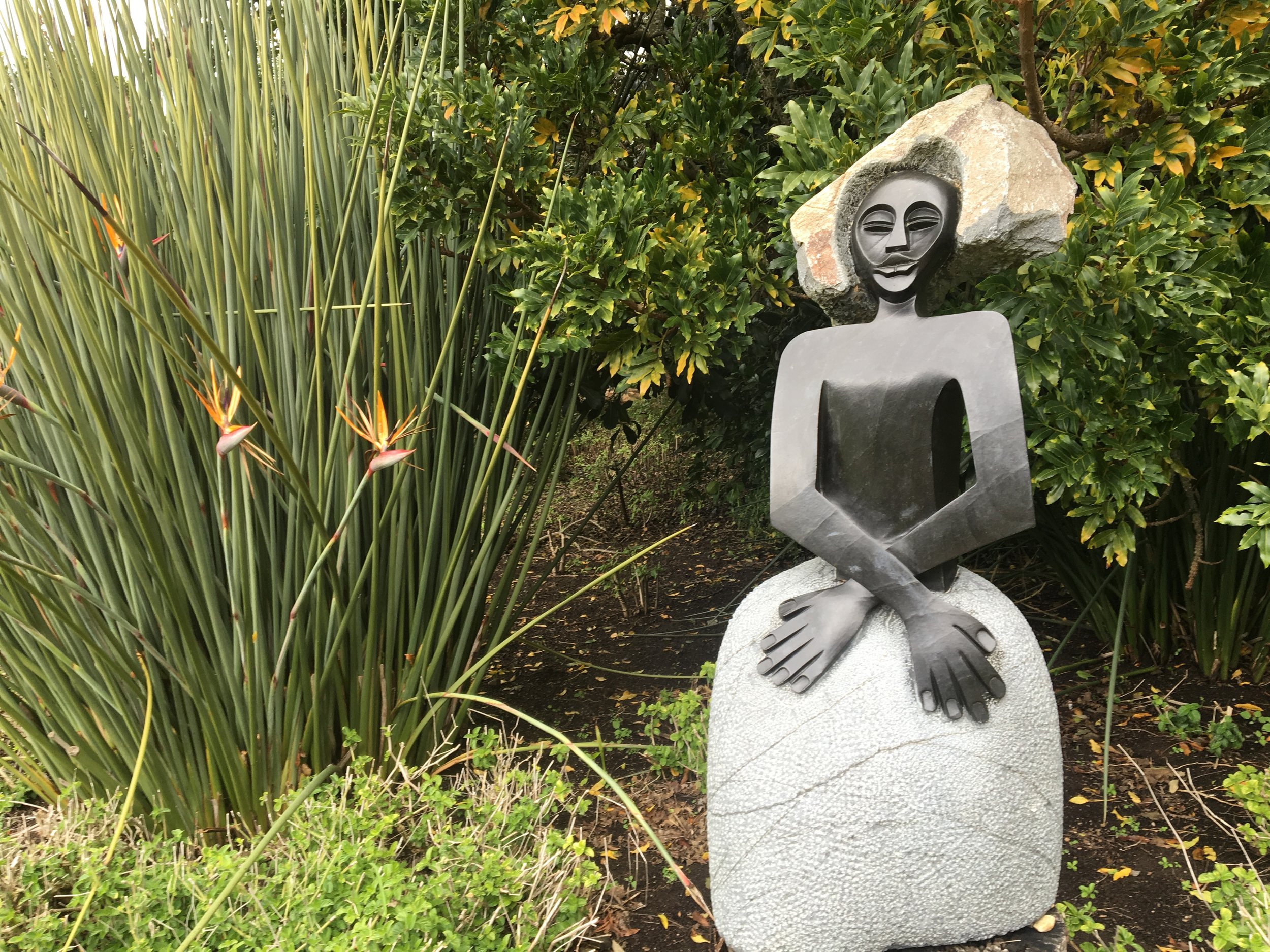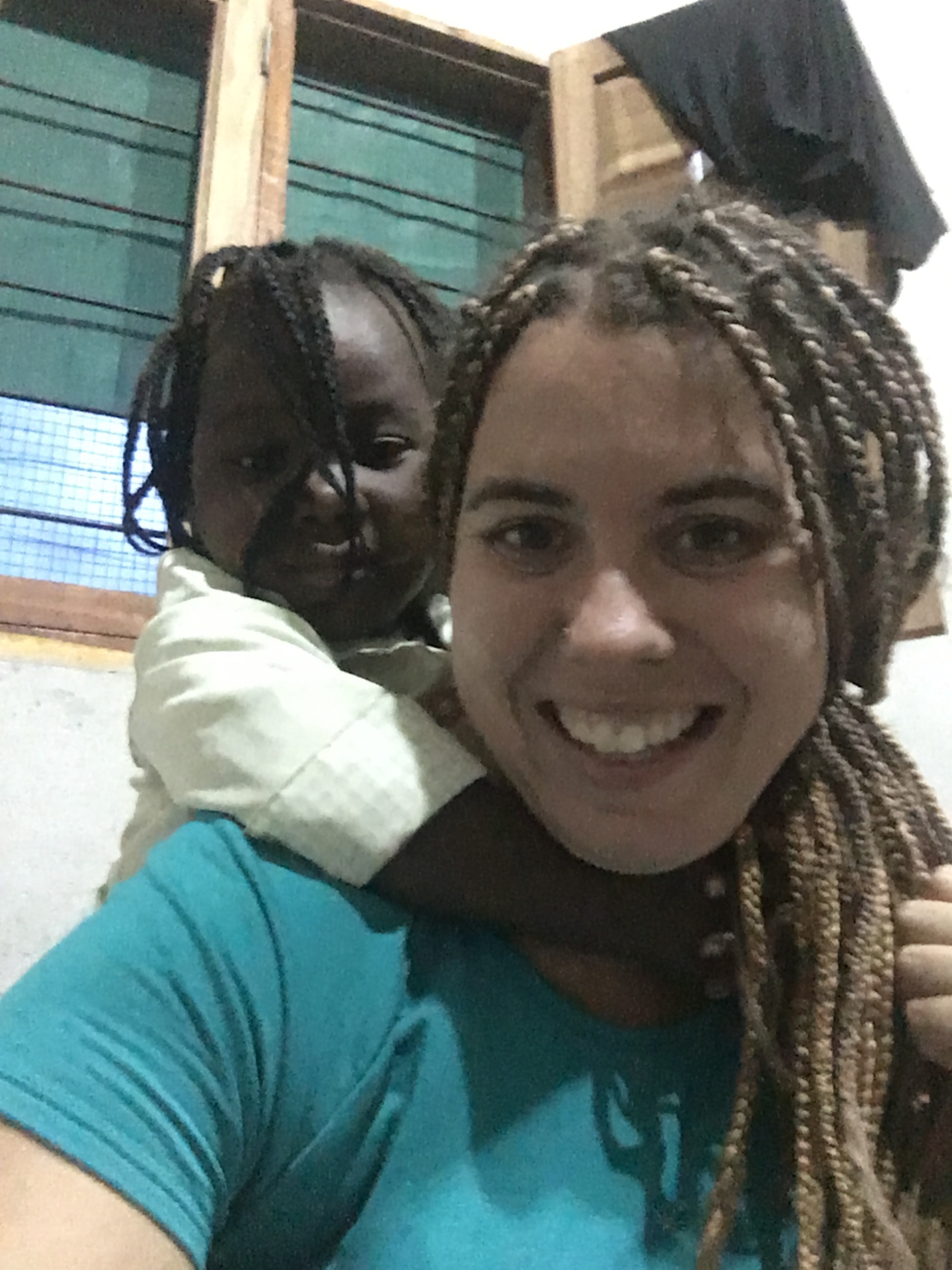Neighbor Things
During Advent I read Walter Brueggemann’s Celebrating Abundance and the first prayer he wrote hit me like a ton of bricks.
“Living God, visit us in this season with your Holy Spirit that we may get carried away to do obedient things we have not done, kingdom things we did not think we had in us, neighbor things from which we cringe…”
Ugh.
Neighbor things.
In a recent effort to live in solidarity – or perhaps merely alleviate the guilt of my privilege – I moved in next to a Mozambican family from church. I wanted to live incarnationally, experiencing life a little closer to the way my Mozambican friends do. I moved here to become a neighbor.
I thought of it as a ministry of presence. After a year here I’ve come to terms with the fact that loving people here isn’t about doing things, but about being with people. This thought comforts in a place where I am so different, a place where the cultural and language barriers are so steep. But from where I sit now on the corner of my rope bed – consciously or subconsciously hiding from my neighbors – I do not know if it’s still true. It takes more than moving in to be a neighbor.
Neighbor things.
I live behind a bamboo fence in a cement house perpendicular to Palpina’s house. Palpina is a single mother of 7 girls, 6 of whom live here, and one who has another daughter living here also. That means there are always at least 9 women living in this yard, and that’s when there’s no visitors. There is always a baby crying, a sister yelling down the street, a carpenter cutting wood next door, pop music playing on speakers across the street, food on the fire, a chicken crowing. We share water buckets and meals and lines for hanging clothes and morning greetings.
We share frustrations when I can’t comprehend what they’re saying or when they bring me yet another giant plate of food that I won’t be able to finish. We share laughs when the toddlers get up at dinner to imitate the musicians dancing in the locally made music videos we watch every night or when the family runs to catch the rat they scared off the wall.
Neighbor things.
It’s ikoma season – the season of ceremonies initiating young girls into adulthood. My host sister had hers recently and we hosted the party at our house. On the day of the celebration I went outside to volunteer to help with food prep. I often volunteer to do things, mostly as a gracious gesture, because whether it’s building a latrine or cooking a meal, I don’t do many things particularly well. But they were ready for my help that day. I sorted and cut all of the greens. I shelled peanuts. And then they said, “We’re going to the mill,” and I said, ”Okay,” not realizing that the “we” meant “me.” I realized this about the time that someone came up behind me and placed a large sack of corn on my head and said, “Let’s go!”
And so I stood, wobbling beneath the bag and making one last attempt at securing the fabric I had wrapped around my jeans, which I absolutely would not have worn if I knew I was participating in this activity. It was a failed attempt.
I can assure you with great certainty that I was a sight to behold, and if you were to search you would find at least two in the area who documented it on their cellphones. An American girl walking down the street with one hand balancing a giant bag of corn and the other hand gripping her skirt for dear life. My neighbors, poised with completely balanced bags and secure skirts, were frequently forced to stop and hold my bag up while I re-tied my skirt over and over again. I couldn’t help but laugh at the absurdity of it all, how completely inept I was at the tasks that are so incredibly basic for them. Unfortunately, they weren’t laughing. But I humored all of my neighbors when I got home to tell the tale of my inadequacy. That’s my main relationship builder here – getting large groups of people to laugh at my failure. A real self-esteem booster.
Neighbor things.
Before the party started, the girls began to braid each other’s hair. Some braid their natural hair, while others braid in mexas, a longer hair weave. I sat down to join them. I took a strand of hair that had been started and began to braid it. “She understands how to braid,” they whispered, shocked that I was capable of doing something correctly. The whisper soon became a chorus that passed down the street, “She can braid!” “She can braid!” They soon began trying to braid my hair, a small army of girls deliberating on how to handle my slippery locks. Later I would grant their wish and buy a bag of mexas in an attempt to participate in this activity. 3 hours of braiding and watching the Nigerian cinematic thrillers Blood Sister and Blood Sister 2 later, they had finished braiding the bottom half of my hair and had run out of hair. So, I looked a little more ridiculous than planned. The next day I would buy two more bags of hair and endure four more hours of braiding by the whole neighborhood before the job was complete.
Neighbor things.
So, back to the ikoma. If there is one thing that takes place at ikomas, it is dancing. Dancing has been one of those unexpected doors into people’s lives. I took a lot of missions classes, but none of them ever noted that twerking could be a critical relationship building tool.
While there’s a bit of variation depending on where the ceremony is held, there is one dance that everyone here comes out of the womb knowing how to do. It’s called the okonha. If you’ve been to this part of the world you may have seen this dance. It is beyond my comprehension. It looks a little like your booty detaches from your body and moves in a square. I am convinced that it is biologically impossible for me to do this dance. But everyone loves when I attempt it. Many hours now have I spent in a circle of women in the wee hours of the morn with a flashlight shining on me so that the group can analyze whether or not I’m doing it correctly. And then we all laugh about it. Because I can’t. But I try. And that’s the point.
Neighbor things.
But the ikomas are about much more than advanced hip shaking. They are critical carriers of culture where advice, traditions, and values are passed down. At a ceremony in a rural area recently we were invited into a house to begin the ceremony after a quick caterpillar appetizer. The subject of the ceremony sat on a rope bed as family members poured water over her head to symbolize the washing off of her childishness and the watering of her adult life. The rest of us sang and prayed as this act commenced the ceremony. I was so overcome by this moment. What an honor to be invited into this sacred space. What a blessing to be in this village on this night so far from my home celebrating one of the most important days of this girl’s life. How humbling to be a part of this life, this place.
Neighbor things.
At the ikoma at my house I danced all. night. long. “I’ll sleep tomorrow,” I told myself, swaying along to the drums with the women who were left standing.
By 10:00am all of the guests had left and my family looked exhausted. All the neighbors commented on my red eyes and how I hadn’t slept. “Now it is time for bed,” I decided. But then something that I thought was truly unbelievable began to unfold before my eyes.
My host mom pulled a table outside and then brought out their TV. Another man appeared in the yard with a pair of speakers about as tall as me. Relatives and neighbors filled the yard. And then they pressed play.
I laid in my room with my whole body and bed pulsating to the bass line that pumped through the yard. It was as if my bed apparated to Studio 54. How could they wake up at 4:00am, work all day long, dance all night, prepare food for a hundred people, and then just keep partying?
Around noon I returned to the festivities. I watched them dance just as passionately and sharply as they had done when we began 12 hours earlier, in blazing heat nonetheless. They kept going for 12 more hours, repeating a playlist of about 10 songs over and over. The night ended by watching a bizarre Nigerian film, which I was called upon to translate.
Neighbor things.
There’s the silences. There’s the language mistakes. There’s the mystery of how to get water and where the trash goes. There’s the curiosity of when to open my door in the morning. There’s the kids coloring on the walls, breaking eggs, hiding Cheetos in windowsills, and shouting my name for the full duration of my shower. And countless other neighbor things. Neighbor things from which I cringe. Neighbor things from which I hide. Neighbor things that leave my face blank and confused.
There’s also the dinners together. There’s the early morning shouting to tell me that I have an important visitor, only to discover that there’s a hand-sized land snail taking up residence on my door. There’s the kids running up to hug me. There’s the patient neighbors helping me with language. There’s the walks to church together. There’s the new friends who come by to visit. There’s the communal activity of catching rainwater and dancing in it once all the buckets are full. There’s the group celebration when I actually finish a plate of food. There’s the third night in a row of watching a Portuguese dubbed version of Blue Streak. There’s the neighbor things to which I run. The neighbor things I crave. The neighbor things that make me laugh. The neighbor things I love.
I am sometimes irritated with this Jesus – a trilingual man who was culturally apt. He may have been one awkward guy, but at least his awkward things were on purpose. But I am confident that in those times that he went to desolate places, exhausted and overwhelmed, he was praying a prayer similar to mine. “God, give me the strength to go back down there and embrace those neighbor things from which I cringe.”
We all need that prayer. In a world full of imperfect neighbors – ourselves perhaps among them – we encounter the cringe-worthy everyday. We encounter the moments and events and humans we would rather avoid. But may we learn to be neighbors who do more than just live next door. May we learn to follow in the steps of the proverbial Good Samaritan who disregarded his agenda and cultural boundaries to cross the road, to comfort the broken, to heal the wounds, to be physically and financially vulnerable, to make a new friend, to do the cringe-worthy.
Because that’s what God does. God is a neighbor, dwelling among us in spirit and flesh. God’s image – the image of love, of value, of dignity, of glory – is imprinted on our neighbors, cringe-worthy as they may be.
Holy God among us, empower us to be neighbors. Teach us to embrace rather than hide, engage rather than ignore, love rather than resent, and laugh rather than cringe. Let us be neighbors as you are a neighbor and let us find you in our neighbors.







